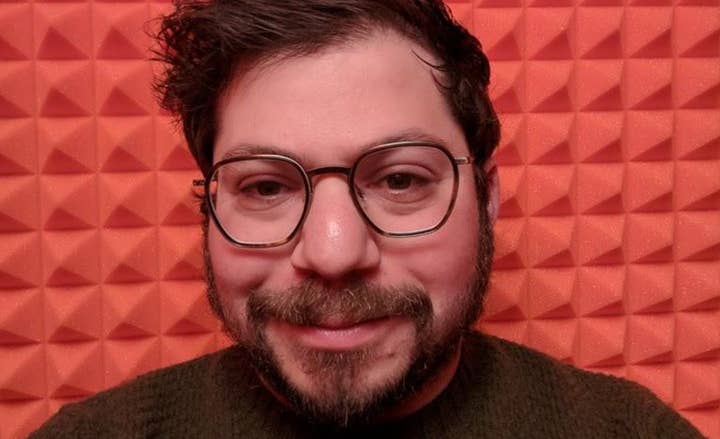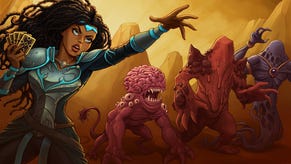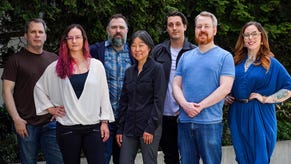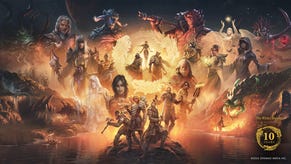Full crunch, no crunch, self-crunch: One developer's career and going solo
Developer Seth Rosen reflects on his experiences of crunch working on BioShock Infinite, Don't Starve Together and Mafia III
Crunch has been the primary topic of conversation in video games for a while now. Although not a new subject, it seems we are just starting to come to terms with how widespread and toxic its culture in the industry can be.
People continue to hand-wave away crunch at some of the biggest studios in defense of completing prestige projects, ignoring the basic rights of workers to avoid burnout. But what is it like on the inside working on some of these huge titles? And can a developer leave these practices behind?
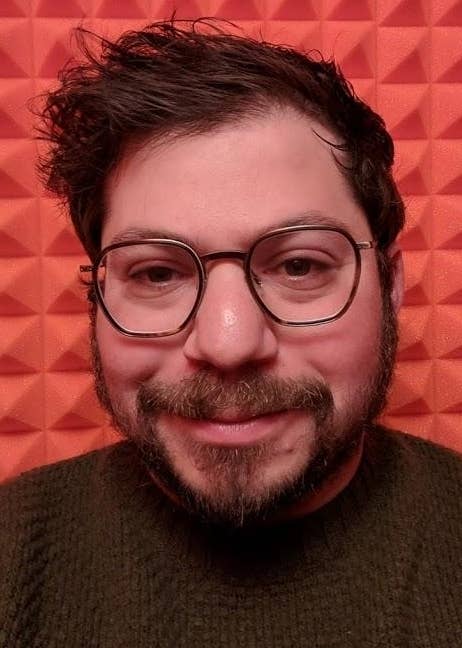
Seth Rosen is a systems designer who has worked at Irrational, Klei Entertainment, and Hangar 13, helping to shepherd some extremely beloved and controversial games to life over the last decade. After studying computer science at Wesleyan University, Rosen started casting about for any job that would have him.
He ended up working first for Creat Studios, a company with about 80% to 90% of its workforce in Russia and a roughly ten-person office in the US, focused on making titles for the PSP and the DS. Only a few months into his time there he got a call back from Irrational to re-apply for a QA position he hadn't gotten the first time.
Coming on board shortly after the second E3 showing of BioShock Infinite, Rosen began working unpaid hours after his normal QA shifts testing a new UI approach to weapon layouts in the (cancelled) multiplayer mode.
"That was a night's or weekend's sort of skunkworks project that myself and another tester who was trying to break out got into," said Rosen. "That was really terrible for my health because then I was working constantly on top of the -- at that point -- moderate crunch that the whole studio was doing. But it got me noticed, so that when the design team needed some help with low-level tasks -- namely VO scripting, like implementing NPCs saying lines as you get close to them, that kind of thing -- I was already kind of on their radar as someone who was capable and motivated.
"If you're going to volunteer to work real hard for no additional compensation, then corporations are your best friend"
"They scooped me up and I did that for a week and then they tossed me over to do systems design on the multiplayer mode, which I did for about a month before it was cut. Almost simultaneous to the multiplayer mode being cut, they needed some help on Elizabeth."
For the rest of his time at Irrational Rosen would be part of 'Liz Squad', tasked with bringing to life arguably the most dynamic (and least irritating) player ally in games to date. He describes that role as "character design through level design."
BioShock Infinite was one of the first major projects to bring a discussion about crunch to a larger audience, even being bemoaned by its lead Ken Levine in an uncharacteristic move. When Rosen and I spoke, I asked him what his awareness of crunch on the project was like, considering it was basically his first industry job.
"It wasn't that something that I had a ton of awareness of in terms of how normal or widespread an experience crunching was," he said. "I had it both better and worse than other people on the team, I think. I had it better in that I was junior enough that I wasn't coming directly under the ire of Ken very often. Which, I think is one of the painful aspects of that game is the way that Ken was willing to tear people and their work down.
"On a personal and individual level, he's a really nice guy. We get along really well, we've had conversations since I left and they've been very pleasant. And I think he's a smart dude, but I think he's a much better editor than he is a director. You'd be working and put something in front of him and he would be frustrated that it wasn't right but then not necessarily be able to tell people what the right thing was. So it was this kind of process of people guessing at the right thing and spinning their wheels on work that gets trashed and then having to go back to the drawing board. So I was spared from that, which was a blessing."
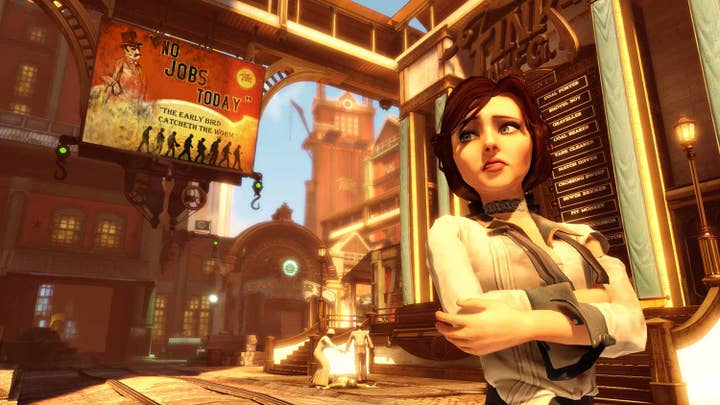
However, because Rosen as a junior, he felt he had more to prove. On one project, he spent three to four months working his approved eight to 12 hours in QA, but then voluntarily staying to work on prototypes until midnight. And then he began working weekends.
By the time he was moved onto the Liz Squad he had already -- on a self-imposed basis -- been "crunching pretty hard for several months."
"When I joined Hangar 13, I started crunching as soon as I arrived in San Francisco. I never really figured out how to live there"
"That was right after we finished crunch for the E3 demo and then we had the destination PlayStation demo, and then I was crunching personally and then the whole team was crunching because we just had to make the video game," he says. "So I'd say for me it was almost a year of constant crunch, which is not kind to your body or your mental state. I was definitely pretty burned out afterwards. But also this was my first gig and I was ecstatic just to be there. BioShock Infinite was personally not the worst project of my career.
He continues: "There was definitely some of that gravitas that comes from working on the next BioShock that makes you want to put in your maximum effort. And corporations are all too willing to take advantage of that. If you're going to volunteer to work real hard for no additional compensation, then corporations are your best friend. It was like... we've all been through duress together and we've come out the other side of it and we've made something we're pretty happy with. And it was miserable, but we did it. I don't want to do it again, per se, but hey we're here and now we're friends. It was interesting, but I came out of it really pretty done."
After a break Rosen worked on Don't Starve Together at Klei Interactive, the multiplayer addition to the well-received and well-loved Don't Starve. Klei has a top-down policy against crunch, instituted over time following the company's own rocky history with overwork. While he acknowledge that Klei wasn't the most idyllic workplace in the world, he found it extremely refreshing after Irrational.
The problems were almost the reverse of the ones he had faced. Instead of a dictatorial headman, he described "difficulties that come with the fact that it's completely flat organization with no producers, because that means that there is inevitably going to end up being someone who's kind of a project lead but they're not imbued with any concrete power."
But, he adds: "Klei like actually felt really similar in the ways that individuals collaborate to Irrational. Both places are studios where everyone kind of knew that they were working on something that was going to be special in some way or exciting in some way and was eager to make that the best possible version of itself."
After Klei, Rosen moved to the studio that would prove to be his hardest challenge, crunch-wise. Hangar 13 was looking for someone to help make their debut title Mafia III's fictional city of New Bordeaux feel alive and he was in charge of a small team creating "ambient life."
"I don't know how to live my life. I don't remember what normal days are like"
Rosen and his team wanted to create this robust and well-realised city around the main character -- a half-black Vietnam War vet orphan, whose experience of 1968 New Orleans would have been dramatically different to that of your typical Caucasian protagonist.
However, Rosen reports the project was a mess. Meetings on the various aspects of New Bordeaux's culture wouldn't be followed up on because "everything was so on fire" and scope of the project was "way too big". The crunch began to take its toll on him.
"I gained a bunch of weight," he says. "I didn't socialize as much. I probably drank more and smoked more. When you're crunching in that way and you have the psychology that I do and you're doing it for as long as I was, it just becomes your entire life. That's all you're doing. And any spare time that you have is basically dedicated to this, this idea of adulting, like paying my bills and doing my laundry and feeding myself when I'm not being fed by the studio, which was most of the time. I wouldn't recommend it necessarily.
"When I joined Hangar 13, I started crunching basically as soon as I had arrived in San Francisco, which meant that I never really figured out how to live there, which was difficult socially. And just in terms of lifestyle, it created this scenario where I barely lived in my apartment. I hadn't really explored San Francisco. I haven't really met anyone there except for the people that I've worked with. It just creates bad patterns in your life."
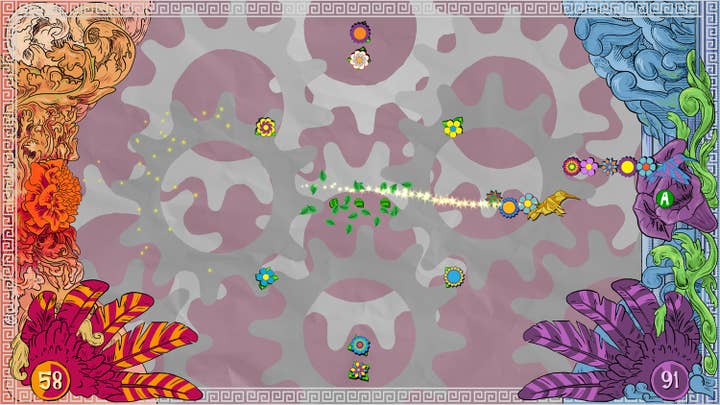
Coming out of the most protracted and intense crunch yet, Rosen took three months to travel and try to relax. Returning to the US, he started his own company -- Short For A Knight -- and began working on his own game, Nectar Vector. Once again, he was working at nights and weekends while continuing at Hangar 13, this time for himself.
"No, unionization is not going to fix everything that's wrong with the industry, but by God it will help"
After another year, Rosen left Hangar 13 and with Nick Breckon (formerly of Telltale and Bethesda) started another studio, Final Final, that is currently working on an as-yet unannounced project. Conceived of during a three-day game jam internal to Klei, and purchased from Klei founder Jamie Cheng for one dollar upon leaving, Nectar Vector is a colorful, fun, less violent, local multiplayer game "about pollinating flowers with a 60's psychedelic rock aesthetic."
Even as his own boss though, Rosen has trouble finding a work pattern that avoids crunch. So ingrained are these traits and practices that he finds himself going down the same paths, even with no one to answer to.
"We just finished this push to get our demo done and we're going to start reaching out to potential funding partners now," he said. "I spent the last four months working really hard and it's now hard for me to relax because I don't know how to live my life. I don't remember what normal days are like. So it's this process of rebuilding and kind of re-establishing healthy routines."
When asked what he thought of the recent layoffs at Blizzard/Activision, Rosen interrupted the question to simply yell "UNIONIZE! UNIONIZE!" adding: "It makes me fucking furious."
We discussed similarities between game development and film/TV making, which has been successfully unionized through virtually all levels of production for years. Game Workers Unite International also came up, which has successfully been recognized in Britain and which has branches in many major cities. We agreed that widespread change will probably start with one large company.
"There has to be a vanguard, there's gotta be one first thing," says Rosen. "I don't think realistically we can expect for a sweeping whole industry unionization all at once. It's going to be a process and we have to keep at it and there's going to be someone that's going to sort of break the levee and then hopefully that lets the rest of us kind of flood through.
"No, unionization is not going to fix everything that's wrong with the industry, but by God it will help."
